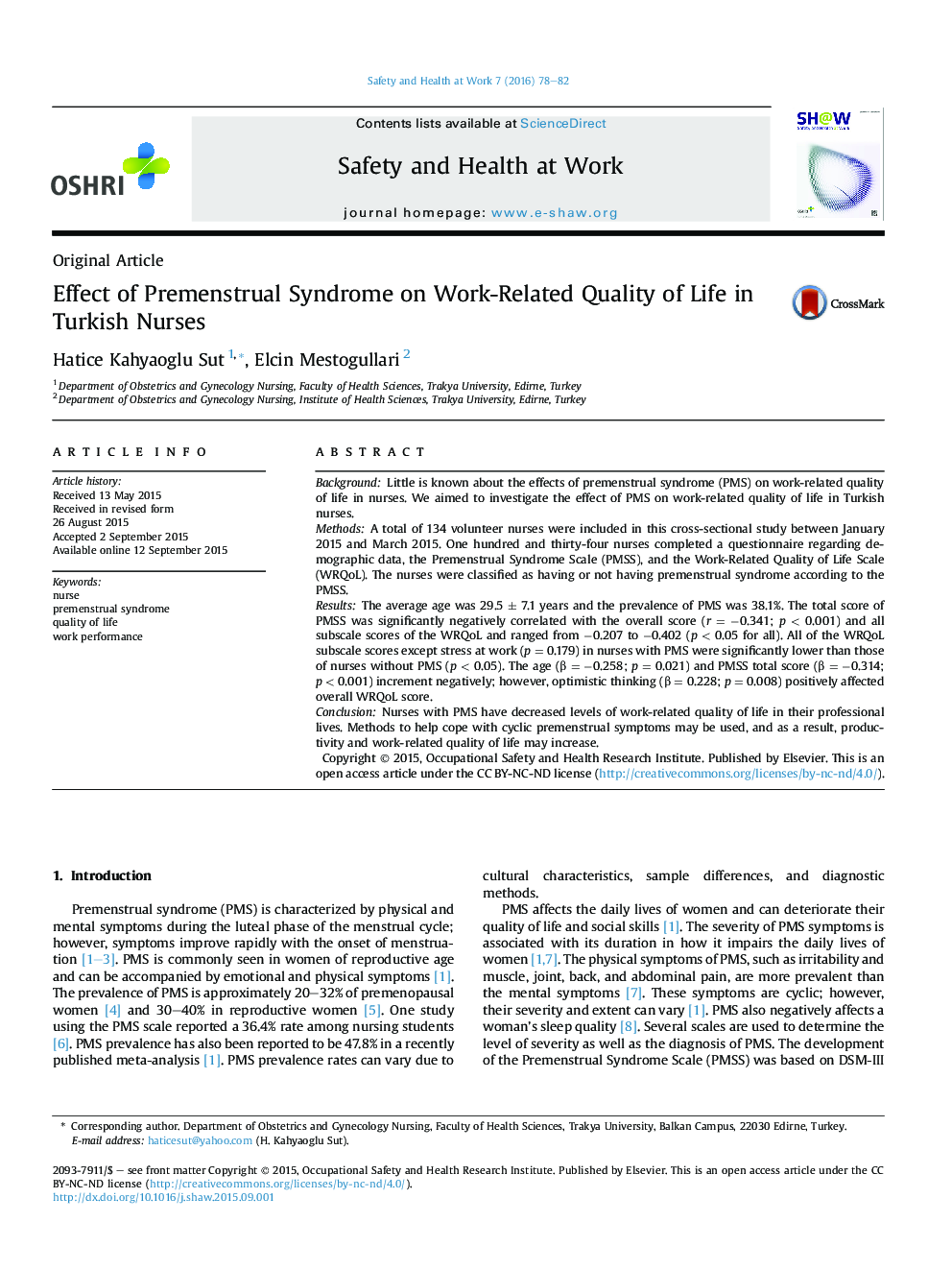| کد مقاله | کد نشریه | سال انتشار | مقاله انگلیسی | نسخه تمام متن |
|---|---|---|---|---|
| 1091993 | 952226 | 2016 | 5 صفحه PDF | دانلود رایگان |
BackgroundLittle is known about the effects of premenstrual syndrome (PMS) on work-related quality of life in nurses. We aimed to investigate the effect of PMS on work-related quality of life in Turkish nurses.MethodsA total of 134 volunteer nurses were included in this cross-sectional study between January 2015 and March 2015. One hundred and thirty-four nurses completed a questionnaire regarding demographic data, the Premenstrual Syndrome Scale (PMSS), and the Work-Related Quality of Life Scale (WRQoL). The nurses were classified as having or not having premenstrual syndrome according to the PMSS.ResultsThe average age was 29.5 ± 7.1 years and the prevalence of PMS was 38.1%. The total score of PMSS was significantly negatively correlated with the overall score (r = −0.341; p < 0.001) and all subscale scores of the WRQoL and ranged from −0.207 to −0.402 (p < 0.05 for all). All of the WRQoL subscale scores except stress at work (p = 0.179) in nurses with PMS were significantly lower than those of nurses without PMS (p < 0.05). The age (β = −0.258; p = 0.021) and PMSS total score (β = −0.314; p < 0.001) increment negatively; however, optimistic thinking (β = 0.228; p = 0.008) positively affected overall WRQoL score.ConclusionNurses with PMS have decreased levels of work-related quality of life in their professional lives. Methods to help cope with cyclic premenstrual symptoms may be used, and as a result, productivity and work-related quality of life may increase.
Journal: Safety and Health at Work - Volume 7, Issue 1, March 2016, Pages 78–82
